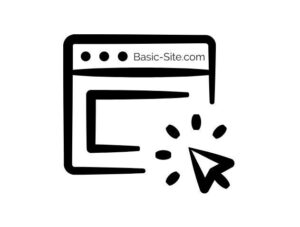
In my last post, I asked the following question. “What is (AI) Artificial Intelligence?” At the end of my last post, I asked another question. “How can Artificial Intelligence (AI) improve our basic website? ”
Artificial Intelligence (AI) is increasingly being used in website development to enhance various aspects of the web design and user experience. In this post, we look at 12 ways that AI is being applied in website development.
1) Personalization - AI algorithms can analyze user data, such as browsing history and preferences, to provide personalized content and product recommendations. This can improve user engagement and conversion rates. 2) Chatbots and Virtual Assistants - AI-powered chatbots and virtual assistants can handle customer inquiries, provide support, and guide users through websites. They can answer common questions and assist with tasks, improving user satisfaction. 3) Content Generation - AI can generate content, such as product descriptions or news articles, by using natural language generation (NLG) algorithms. This can help in automating content creation for websites. 4) SEO Optimization - AI tools can analyze search engine optimization (SEO) data, suggest keyword strategies, and help improve a website's ranking on search engines. They can also identify and fix issues that affect SEO performance. 5) Website Design - AI-driven website builders and design tools can help automate the design process by suggesting layouts, color schemes, and elements that are likely to improve user experience and engagement. 6) A/B Testing - AI can analyze user behavior and preferences to optimize A/B testing and help developers make data-driven decisions about website design changes. 7) Security - AI is used for website security, helping to detect and prevent cyber threats such as hacking attempts, DDoS attacks, and malware infections. It can also identify vulnerabilities and provide solutions to protect websites. 8) User Experience (UX) Optimization - AI can analyze user interactions and provide insights into improving the website's UX. It can recommend changes to the layout, navigation, and content to enhance user satisfaction. 9) Content Recommendation - AI algorithms can analyze user behavior and provide real-time content recommendations, such as articles, products, or videos, to keep users engaged and on the website longer. 10) Performance Optimization - AI can help monitor website performance and suggest improvements, such as optimizing images, scripts, and server responses for faster load times. 11) Language Translation - AI-powered language translation services can help make websites accessible to a global audience by providing automatic translation of content. 12) Accessibility - AI can assist in making websites more accessible by providing recommendations for improving compliance with web accessibility standards, such as the Web Content Accessibility Guidelines (WCAG).
Basically, AI is a valuable tool in website development, enabling automation, personalization, security, and improved user experiences. Developers can leverage AI-driven tools and services to create more efficient and user-friendly websites.
